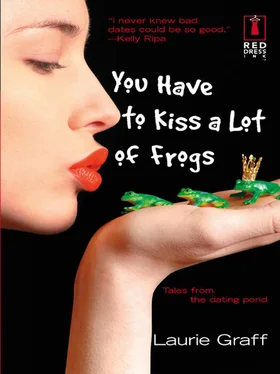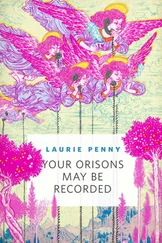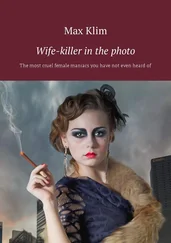“Keep your voice down,” he said, reaching to light his cigar. “She only meant well.”
My mother came back outside wearing a green-and-black-striped bathing suit with a white chiffon kerchief wrapped around her head.
“Who meant well?” Millie asked as she unfolded a reclining beach chair. She lay down on the chair, pulled the straps of her bathing suit down and basked in the sun.
“Do me a favor and don’t talk to anyone about me, Ma, okay?” I decided I would go for a run around the lake. I decided I might jump in.
“What did I say?”
“Nothing, no one said anything,” said Henry.
“She comes over here,” I said to my mother, pointing my head toward the Berger house, “and has a one-way dialogue with me, about my life. Asks the questions and even answers them herself.”
“Don’t pay attention,” my mother said. “I just wouldn’t answer her.”
“Just don’t pay attention,” said Henry.
I stopped stretching, stood up and leaned over my mother in her reclining position.
“What do you mean? Just have someone sit and invade my privacy and not care? Not answer? Just sit and let people talk at me as if they were talking to a wall?”
“I don’t know why you’re getting so worked up about this,” Henry said, flicking his cigar ashes into an ashtray. “She means well.”
Millie folded her right hand across her chest, holding her bathing suit up, while she used her left to prop up her body.
“I don’t know why you take everything so personally,” she said.
“She’s talking about me. It’s personal.”
“She doesn’t mean anything by it. It’s just conversation, Karrie.”
“Mom. It’s condescending.”
“It’s not condescending, it’s talk. If you were happy it wouldn’t bother you.”
“What does that mean?”
“Just what I said. If you were happy it wouldn’t bother you.”
“What makes you think I’m not happy?”
“I don’t want to talk anymore,” Millie said, lying back down. “Talk to Henry.”
“People just want to see you happy,” he explained.
“People just want to gossip,” I said.
“So what?” said Millie. “What do you care?”
“Would you like people to come to you and feel they can comment on your life?”
“There’s nothing to comment on in my life,” said my mother. “My life is normal.”
“And what does that mean?”
“My life is a normal life,” my mother said defiantly. “I have a normal job, a husband, a daughter, a house. Normal.”
“By whose standards?” I was furious. “What makes you think anyone around here sets the standard for normalcy?” I made a grand gesture to the entire development of Nottingham Forest. It was just built and in its first year. I didn’t know anyone there so it was doubtful Molly and Hal did set the standard, but it proved my point. Or at least it tried to prove the only point I had.
“All right,” said Henry, putting out his cigar, “let’s drop it.”
“Let’s not,” I said.
“Let’s,” said my mother. “Let’s not ruin this day. You’re upset because you just turned thirty and you’re not married.”
“That’s absolutely not true! You’re upset that I just turned thirty and I’m not married. I’m not.” I wasn’t. But I was a little upset that I had just turned thirty. And I was a little more upset that I didn’t currently have a steady boyfriend. And I was really upset that I had just been released from being on hold for three national commercials. But that wasn’t the point. None of this was. Molly Berger was an annoying Yenta and nobody came to my defense. Nobody would let me say what I feel.
“I’m not upset about anything. I’m completely happy,” I said. “Completely.”
“Good,” said my mom. She resumed her reclining position on the beach chair. “Just keep in mind that it gets harder to meet someone as you get older. People meet when they’re in college. That’s the place to meet.”
“That’s where Lenny met Sharon,” said Henry.
“First of all, Henry, Lenny met Sharon after college. After graduate school. Years after. In a bar in Boston. You may have college mixed up with college town. Second of all, I didn’t want to get married to anybody in college. I don’t even want to get married to anybody now. I’m an actress.”
“So what does one thing have to do with the other?”
It was the first question my mother posed that made any sense and I started to think about it. I wanted to talk about it. What did one thing have to do with the other?
“Okay, I’ll tell you something, Mom.” I wasn’t sure if this was an answer, but it felt like the beginning to understanding the question. “This is the thing.” I looked across to see that the Bergers were safely ensconced in their house and out of earshot. “I have a much more interesting life than Wendy. I’m an actress. I live in the city. I go out all the time to concerts, theater. I take classes. I date all these guys. I’m single!”
“Keep your voice down,” said Henry. “We don’t need the neighbors to know our business.”
“Why not? They know it anyway. They may as well hear it from the horse’s mouth and get it straight.”
“Do you want to go home?” my mother asked. “If you’re going to be like this just go home and don’t ruin my weekend.”
“I’m trying to talk to you.”
“And I’m talking to you. Wendy is a lucky girl that she met Scott. And Wendy has a very interesting life. She has a husband, Karrie. Children. A house.”
“How interesting can that be? Come on, Ma. They live in the suburbs. They go to malls. She’s a dental hygienist.”
“Fine. Don’t get married. Don’t have children. Don’t do anything normal. Stay in the city. Stay single. Just leave me alone and don’t complain.”
I walked away from the conversation and into the house. I didn’t understand. I didn’t understand my mother. I didn’t understand Henry. I thought I understood Molly, but so what. I didn’t understand why anyone thought there would be any consequences to not marrying by thirty. I didn’t understand why anyone thought that was remotely important. I didn’t understand why it all bothered me so much, and I certainly didn’t understand how to understand it.
I always had a date. I met a lot of guys. I just assumed that by the time I was, oh, I don’t know…thirty-seven or -eight, or my God, even forty, one of these guys would just work out. Meanwhile, all I wanted was to work and make money acting and have a boyfriend and have fun. I wanted to go with the flow. I admit it often felt like going against the tide, but I really wanted to enjoy my life and enjoy being me.
I bent down to put on my running shoes. I would run. I would run it out of my system. And I would feel. Better.
“Oh!!!” I turned around and saw Henry behind me. He had followed me into the house, but I didn’t see.
“Don’t say anything,” said Henry as he slid the door closed. “Let’s just drop it and keep the peace with you and your mother. But you’ll see,” he said, all-knowing. “One day you’ll meet someone and you’ll forget about the acting and the city. You’ll have a change of heart. Settle down. You’ll feel different.”
I looked at my stepdad. I knew he meant well, and I knew he believed his theory. Perhaps for some it was that easy, and perhaps for others it was that true. But in my gut I knew he was wrong.
Rosh Hashana
Central Park West, NYC 1988
Rosh Hashana. One of the holiest days of the year in Judaism. And I was in rehearsal for a show. To be a nun, no less.
I was invited to spend the holiday with David’s family and was pretty happy about this. I had met David a few months back in Central Park. We were both running the reservoir. We passed each other and smiled. When we passed each other on the second lap I gave him a flirtatious little wave, one finger at a time, then dashed out of the park. About five minutes later I heard, “Hey, wait up. Aren’t you the woman who was running?” I turned around to see David standing on the corner of Fifth and 90th Street catching his breath and waiting for my response. David said he was a little out of shape. He was a first-year surgical intern at Lenox Hill Hospital and spent most of his time off call asleep.
Читать дальше












